
LOCOMOTIVE JOURNAL
JANUARY 2012
Low hall, high standards
THROUGH the medium of the Journal I would like to say a few words about the RMS
weekend forum at Scalby, Yorkshire from 11 November to 13 November. It was totally worth every minute spent there. The venue was superb, the organisation was great and the company was second to none.
To spend the weekend with a gang of true united trade union brothers and dedicated
socialists whose purpose in life is to make our world a better place is not only a pleasure, but
a privilege. I really look forward to being invited to attend next year.
The speeches and debates with our EC President, an LGBT representative , the TUC
Regional Secretary for Yorkshire and Humber, Doncaster Central MP, Chief Whip for the
Labour Party and EC member Tosh McDonald were not only interesting but also very
informative.
The RMS Forum and the work of the RMS Committee is all funded in-house, so they have set up the 500 Club to help with finances.
Please support this worthwhile section of your union by joining the 500 Club. There are
members at the age of 93 marching the streets campaigning and electioneering on your
behalf - so please get behind them and keep them going.
Spike Jones
Retired Member
Brighton
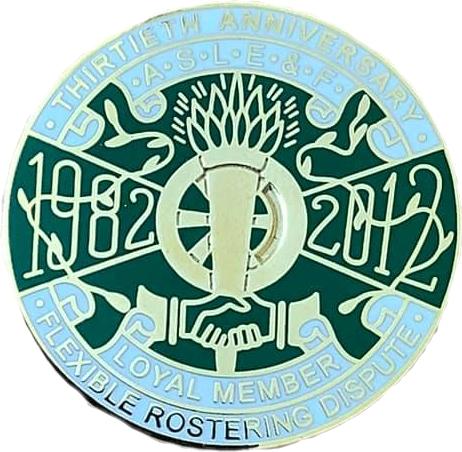
LOCOMOTIVE JOURNAL
FEBRUARY 2012
BOMBARDIER WINS SOUTHERN CONTRACT
Southern announced at the end of last year that it had awarded Bombardier Transportation a £188.8m contract to supply a additional 130 Electrostar electric multiple units cars.
Production is due to commence at Bombardier’s Derby plant in the second half of 2012.
Following a competitive tender process, we found that the Bombardier bid could meet our challenging delivery timetable, was affordable and offered compatibility with our existing fleet, said a statement from Southern.
Thi is welcome news for Bombarier, says Mick Whelan. I cannot for the life of me see why Thameslink did not come to the same conclusion last year when it put the future of the whole Bombardier operation in doubt.
LOCOMOTIVE JOURNAL
MARCH 2012
JASON LEA CLARKE
ONE OF US
It is with great sadness that I report that Barnham Driver Jason Clarke passed away on 20 January aged 42 after a short illness. Jason worked for Southern railway as a driver and was a real joy to be around. He had many interests which included being a Tottenham supporter, walking and socialising with his many work mates. He will be sadly missed by all his family, friends and those who knew him on the railway.
Jason was a ‘top bloke’, truly one of us. He was never shy to help others. R.I.P Jason.
You’ll never be forgotten.
Jeff Turner
Secretary Barnham Branch
LOCOMOTIVE JOURNAL
APRIL 2012
PETITION FOR BOXES
I am a non-safeguarded train driver and I have set up an e-petition which I hope all rail staff of every grade will sign.
It is regarding the re-introduction of staff travel boxes for all non-safeguarded railway staff to fall in line with the rest of Europe. At the moment we can go travel free in Europe (as can continental drivers). But in our own country, they can travel free when we have to pay!!
To see the petition you can Google e-petitions, click on HM Government petitions, type in ‘Railway Staff Travel’ and view the petition which is under the name of my wife, Natalie Anderson, or the link is http:epetitions.direct.gov.uk/petitions/17508. It reads: ‘The restoration of staff travel boxes for all non-safeguarded railway staff, after competition of 11 years continuous service to exceed retirement. To fall in line with the rest of European Staff Travel.’
The 11 continuous service is for loyalty to the railway industry, one year’s probation and tens year’s loyalty.
Dean Anderson
Caterham
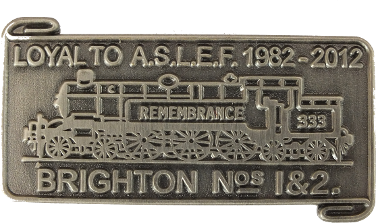
LOCOMOTIVE JOURNAL
APRIL 2012
It was is 30 years since the A.S.L.E.&F. Flexible Rostering Dispute of 1982 took place, thirty years is a long time ago, but the passage of time in no way lessen the significance of the event. It was not only a key event in A.S.L.E.&F.’s history but one whose ripples can still be felt today in terms of the extension of management’s right to manage, cut in public service, the balance between work and life, and relations with sister unions.
Gregor Gall, Professor of Industrial Relations at the University of Hertfordshire, resists the dispute and asses its importance.
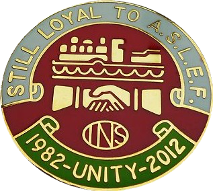
Inauspiciously, the strike began on Saturday the fourth of July. It had been preceded by more than a year of strife, strikes and negotiations over job cuts, pay rises and productivity gains involving A.S.L.E.& F. and its sister unions, the National Union of Railwaymen (N.U.R.) and the Transport Salaried Staff Association (T.S.S.A.). The ‘big picture’ to the dispute’s specific details was the Thatcher government’s policy of not investing in the public sector and also cutting back on existing expenditure. This put huge pressure on remaining staff who, quite rightly, wanted to be compensated for fewer workers doing more work.
Immediately before the despite began on 30th June, A.S.L.E.& F.offered to stand down the strike if the British Railways Board (B.R.B.) withdrew it imposition of flexible rosters, Moreover, A.S.L.E.& F. stated it was prepared to participate in pilot experiments on productivity improvements and flexible rostering which would allow the introduction of the 39 hour week, which B.R.B. had already agreed to the previous year to be largely self financing.
But he the B.R.B. was having none of it. They smelt blood, having had their noses attuned to it by the Thatcher government. But then the Thatcher upped the ante massively by declaring that on 24th July 1982 the railway system would be shut down, with all workers dismissed. A.S.L.E.& F. called off it strike on the 18th July. It was a miserable, horrible defeat.
A.S.L.E.& F. had been at odds with the N.U.R. over the eight hour day, which would be ended by the flexible rosters. As if that was not bad enough, both A.S.L.E.& F. and the N.U.R. chose not to co-ordinate their individual strikes against flexible rostering, crossed each other’s picket lines and the T.U.C. urged A.S.L.E.& F. members to return to work.
The sense in which workers either ’ and united’ or ‘ all divided’ when facing the employer wa then manifestly palpable. But this is not the only, or even main, lesson to be learnt from the dispute. Indeed, there seem to be four.
DICTATED WORKING TIME
The first is that the rostering dispute was about what countless workers have faced since, namely, employers trying to unilaterally dictate what their working time is. For decades, one of the workers’ main struggles has been to reduce the working week or day. This has been for the most fundamental of reasons: to make sure workers work to live and not live to work. In other words, not to let work dominate life, but rather to allow workers to have the leisure time to enjoy the fruits of their labour - their wages. If for this type of reason that unions often boast correctly to non union workers, “WE GAVE YOU THE WEEKEND!”
But since the turning point of 1979, employers have engaged in a war of attrition not only to overturn these hard won gains but to dictate when and where worker turn up to work. Whenever the term ‘flexibility’ is used, it’s always the employer’s version of it, defined to meet their needs to help make the profits from workers’ labour.
In this process, the workers have lost control over the most sacred of things - their time. In a deregulated labour market, this has been taken to the ultimate degree with ‘Zero Hours’ contracts, where workers are guaranteed no set amount of hours but still have to be on call for what work might be available. If they turn up and there is no need for them, then ’so be it’ is the logic. This turns the clock back to the 1930s, when labourers would go down to the docks hoping to secure a day’s work.
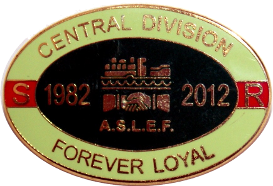
THATCHER’S BATTLE GROUNDS
‘The second is that the battle with A.S.L.E.& F. was merely one of a long line of many set piece battles to destroy British society as it had become. The others were the 1981 Steel Strike, the 1983 Eddie Shah Dispute, the 1984-1985 Miners Strike, the 1986-1987 Wapping Strike, the 1987-1988 TVam Lockout, the 1989 Dock Strike and so on and son. All but the 1988 Postal Workers’ Strike were defeats. In them, the Thatcher government was either the employer or the government egged on and supported its employer friends.
Since the Second World War, the labour and trade union movement had successfully tamed the worst excesses of the free market so that the marker became socialised. This was not socialism but a form of social democracy where market process and outcomes were regulated. Public ownership and price regulations of basic necessities (like rent, electricity, food) were just some of forms this took. But others were strong unions and regulation of wages and employment.
Under the onslaught since 1979, Thatcher realised the power of workers’ collective means of protecting themselves, i.e., unions, had to be crushed in order for employers to have back again want they wanted - the free market. The free market meant not having to share your profits with workers and not having to negotiate with them. In political jargon, this is not just capitalism but the neo-liberal variant of it. Not very liberal in any way!
The battles that were fought and lost in the 1980s meant that today workers no longer have some basic protections from the market and they should. As though that is not bad enough, a ‘race to the bottom’ he been set in train. Each victory for a particular employer not only made life worse for the group of workers concerned but also created pressure on other employers to do similarly. So when one cuts jobs or wage costs, other employers fearing competitive disadvantage do so too. This then means the employer that cut jobs or wages no longer has the competitive advantage they did and so is compelled to cut again. And so on and so on. Come the crash of 2008 onwards, every employer is looking for that with a vengeance and many times over.
LIMITING PROTECTION
This, there is no getting away from the reality of life under capitalism that not only do workers need collective protection in the forms of unions but they also need strong effective unions. for any union to become strong and effective requires that it works out the how, when and where of creating strategic leverage over the employer to gain its bargaining objectives. The rightwing media may call it ‘militancy’ and ‘ransom’ but it is merely being rational in pursuit of agreed goal. (If a business did this, it would be commended and given a Queen’s Award for Industry). Obviously, it requires high density and member loyalty to the union and vice-versa. But it may also include seeking and gaining the help of other such as sister unions at home and abroad.
ATTACK ON PUBLIC SERVICE
Fourth, and finally, workers are the best guardians of the services they provide to the public (even if they do not know it). The stated rationale for the privatisation and marketisation of public services has been that costs would come down and service quality would go up. What prevented this beforehand, we were told, was the vested interest of the producers, i.e., workers. We now know this to be bunkum. But we must also use this knowledge to show that the reverse can also be true - that workers, when working with the public, are best placed to ensure the conditions that lead to poverty funded and quality services (and when in the public sector). Decent staffing levels with motivated staff respected by their employer lead to quality services. These conditions cannot be achieved in the private sector where business, motivated only by profit, knows the value of nothing and the price of everything. But they need strong, not weak, unions to come about.
When the story is brought up to date thirty years later, despite the defeat of the 1982 strike, A.S.L.E.& F. itself was not beaten. Yes, 1982 was a crushing blow and paved the way, ultimately, for privatisation. But A.S.L.E.& F. still exists and still commands high level of union density and influence. Indeed, it was only a matter of a few years later that A.S.L.E.&F. delivered to the striking miners probably the greatest amount of solidarity from any group of workers in their year long battle.
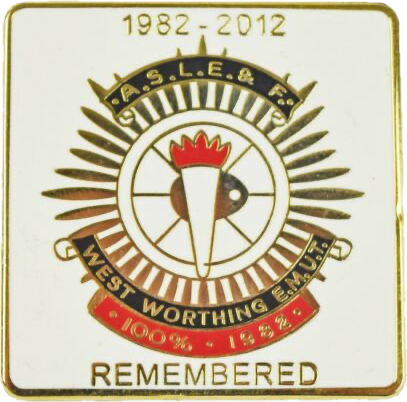
DESIGNED BY MARK JOHNSON
One of three versions of this badge the other two are Black & Green as per the original 1982 version
LOCOMOTIVE JOURNAL
BRIGHTON BRANCH
MAY 2012
Brighton recognition for three leading lights
At the Brighton Branch meeting, presentations of long service badges were
made by our Branch Chair Steven Chatfield to David Eaton (10 years), Paul Horan (25 years) and Simon Weller (now the union's National Organiser) also 25 years' membership.
On behalf of all our branch members, I would like to congratulate them on their
awards and thank them for all the hard work they do for the Brighton Branch.
Mark Johnson, Secretary, Brighton Branch
Brighton Branch Meeting 22nd March 2012
Paul Horan receiving his 25 year membership badge from Branch Chairman Steve Chatfield
Simon Weller receiving his 25 year membership badge from Branch Chairman Steve Chatfield
It's a change of role National Organiser Simon Weller as he is presented with an award - his 25 year badge
Dave Eaton receiving his 10 year membership badge from Branch Chairman Steve Chatfield
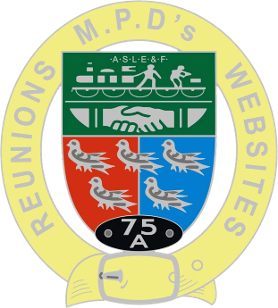
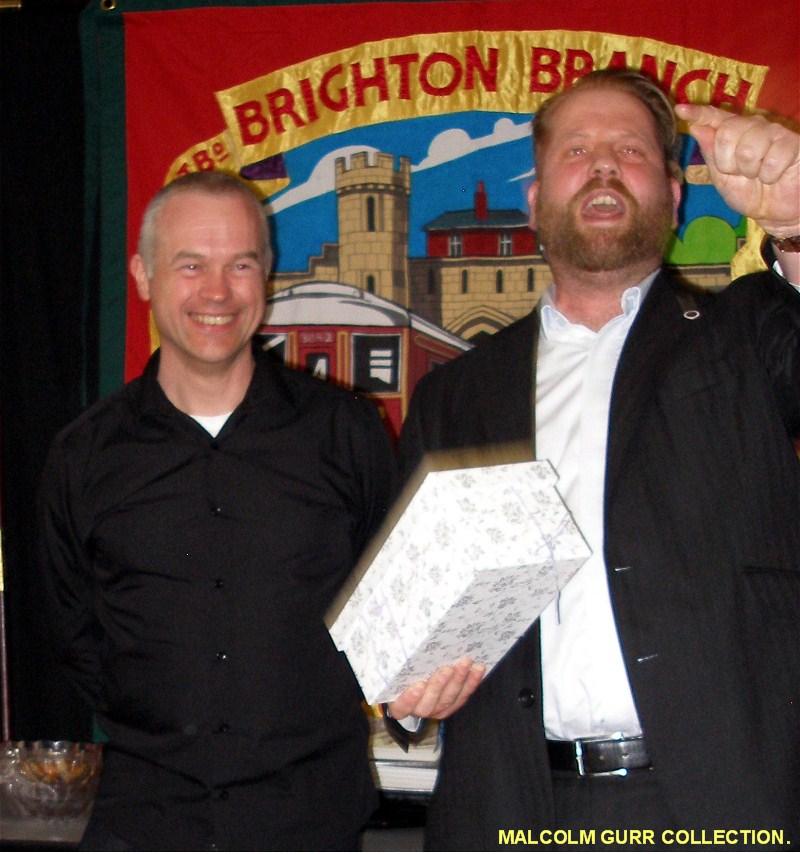
Simon Weller presenting former Brighton Branch Chairman Ivan Wilson
Simon made the presentation on behalf of the Brighton Branch, in recognition of Ivan's service to the Brighton Branch for the past 20 years.
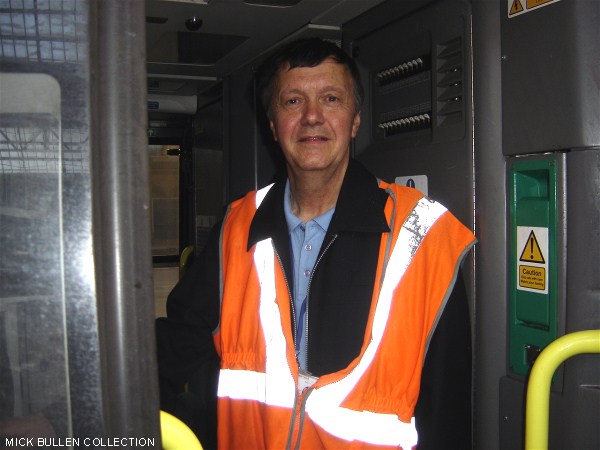
Johnny Waters arriving back in Brighton, after working his last passenger train the 17:07
Bedford to Brighton on 24th May 2012 (12 car 377 with 501 leading)
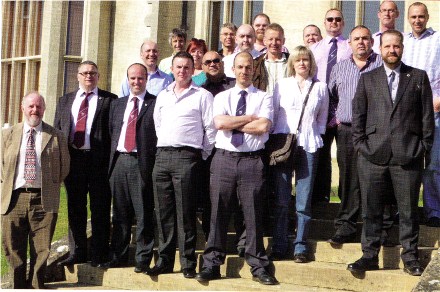
LOCOMOTIVE JOURNAL
MAY 2012
A.S.L.E.F.'s Branch Secretary Course
2012
Back Row 3rd from the Right
Sean Roberts Branch Vice Chairman
LOCOMOTIVE JOURNAL
JUNE 2012
SELHURST BRANCH
TARIQ ‘TAZ’ GOSS GONE FISHING
It’s with great sadness that we report on the death of our friend and colleague Tariq ‘Taz’ Goss who was 44. The sudden and tragic loss was felt across the company and especially at Selhurst where he’d been a driver for the past six years.
Before coming to the footplate Tariq worked at Redhill in 1989 as a member of the platform team for a few years before leaving to go travelling. In 2002 he returned to the railway and joined the team at Purley for a year and a half. He was a private man and was ‘one of the lads’ who loved fishing and had a great entrepreneurial mind for inventing stuff.
LOCOMOTIVE JOURNAL
BRIGHTON BRANCH
JULY 2012
LOCOMOTIVE
JOURNAL
BRIGHTON BRANCH
JULY 2012
ASLEF in Brighton took the
opportunity of the May branch
reunion to present a gift to former
Branch Chair Ivan Wilson.
National Organiser
Simon Weller made the
presentation in recognition of
Ivan’s service to the branch and
his long standing efforts as a LLC
representative. We all wish him
well with his move to Scotland.
Our loss is their gain.
Steve Chatfield,
Chairman,
Brighton Branch
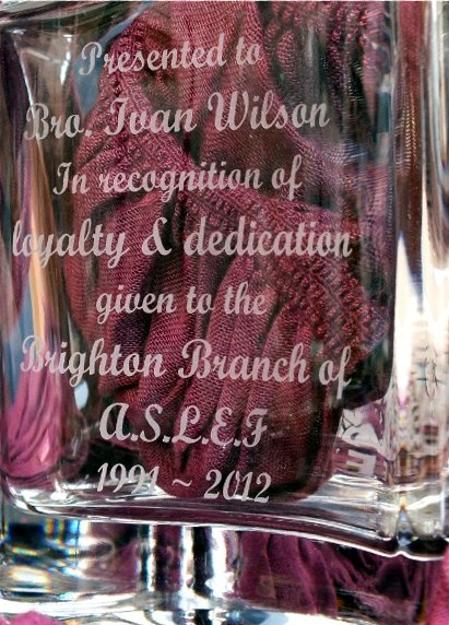
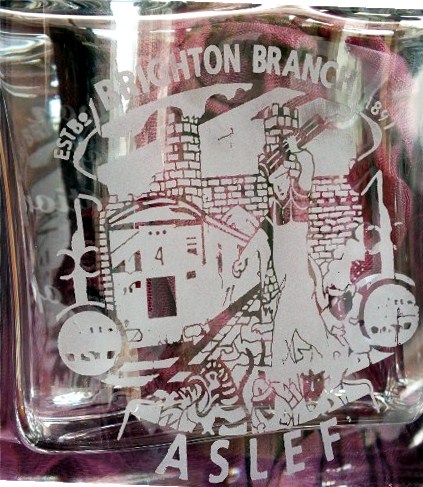
LOCOMOTIVE JOURNAL
THREE BRIDGES
It is with great sadness that I have to report the passing of Bro Martin Gee-Woolley after a
comparatively short illness.
Martin started on the railway as a guard at Three Bridges depot in 1982. After a brief stint at
Redhill he transferred to Norwood Loco as a driver in 1989. Martin then returned to Three
Bridges in 1993 where he remained until his untimely death in June, aged just 56.
Martin was a larger than life character who always had a smile on his face. He served on the
LDC for a number of years and was always happy to offer advice and support.
His funeral was very well attended by members past and present, such was his popularity.
Our thoughts and prayers are with his wife Stephanie, daughter Rachel and son Harry.
R.I.P Martin, it was a pleasure to have known you. You will be greatly missed by all of us here at Three Bridges depot.
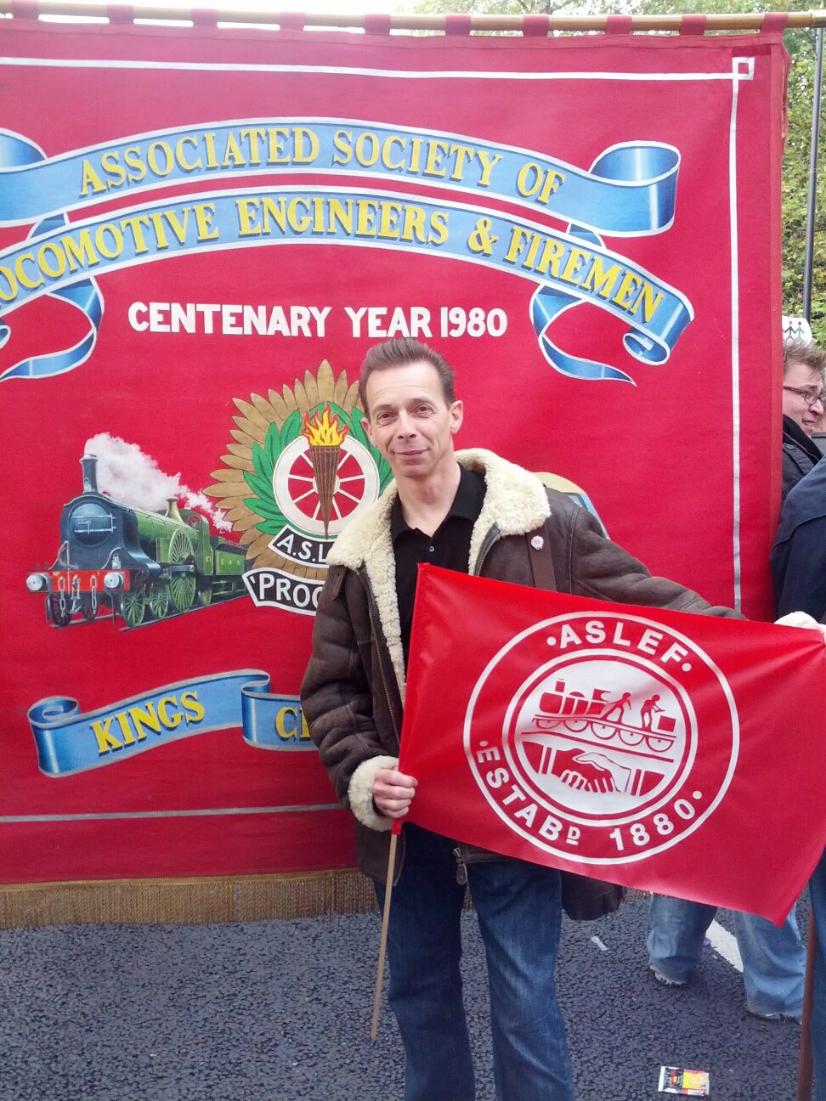
Rob Reddan Collection
Dave Lace at the T.U.C. Rally in London, on the 20th October 2012
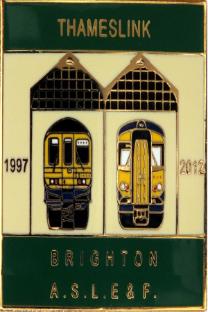
LOCOMOTIVE JOURNAL
BRIGHTON

SAFETY STEVE QUALIFIES!
The branch offers it’s congratulations to Brighton Branch Chairman, and First Capital Connect Health and Safety Rep. Steven Chatfield (right) who has completed a year long Health and Safety Level 3 qualification at Downs College at Newhaven.
Mark JohnsonSecretary Brighton Branch
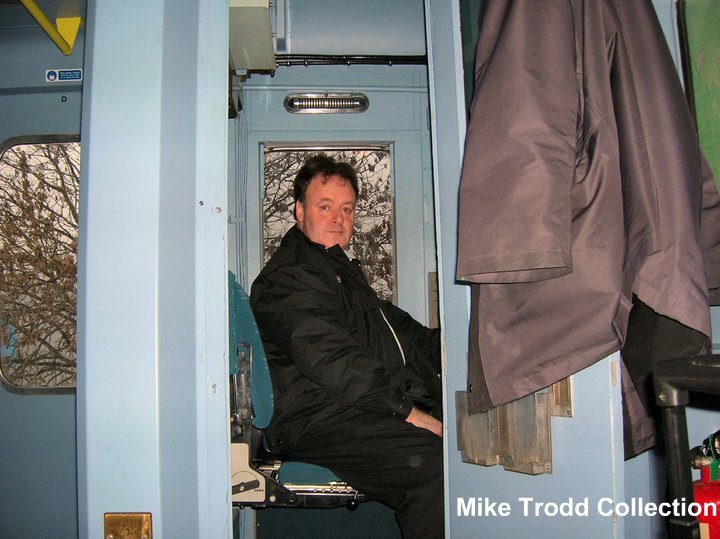
Barnham Driver Mike Trodd in the cab of 313